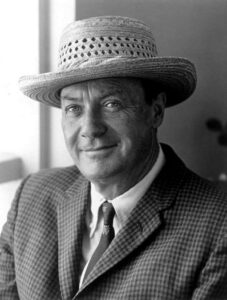Spoiler Alert
THINKING ABOUT THE GALTON CASE

By now you should feel exhausted after being peppered with a hundred bullet points as I whizzed through the plot mechanics as fast as I could. Now it’s time to contemplate the book as a whole.
The Willing Suspension of Disbelief
It’s the trick that makes all art, or at least all fiction, possible. Macdonald pushes us to our limits. Archer says that he hates coincidences. Of all the lies told in the story, that’s probably the biggest one. The Galton Case is a magic act that is dependent on the reader’s acceptance of one of the most preposterous plot turns in the history of the English language—that a man would be hired, unwittingly, to impersonate himself.
The Limitations of the Chosen Point of View
This is a book about Theo Fredericks discovering that he is John Galton. Macdonald called it a “novel of identity.” Edward Margolies, less charitably, called it a “bourgeois fairy tale.” Either way, it is a quest story. And here’s the problem. Quest stories are best told either from the first person or a third person omniscient point of view. We want to know, not just the challenges along the way, but how the hero feels about them and what kind of internal transformations take place.
Archer serves a very odd role as storyteller—not so much a naïve narrator as a clueless one. He doesn’t solve the case. The most we can say is that he facilitates the solution and that he is present when the truth is revealed.
The use of Archer means that the core quest story comes to us in fragments, long after the fact, with no opportunity for reflection. When did John suspect the truth? This is a huge question. If he suspected early, the criminal plot becomes very secondary and his rejection of Ada is even more indefensible. If he suspected late, he is simply the luckiest con artist who ever lived. All we get is a clipped version of the process, told to an audience.
What about Culligan?
What did he know and when did he know it? Macdonald gives us no explanation for why Culligan would seek out the company of the Fredericks or why Nelson would allow Culligan into his home instead of beating him up as he did the last time for making eyes at Nelson’s girl. Frederick is a violent man who lives by his own rules. From his point of view, Culligan is nothing but trouble.
Culligan sees the boy, sees the clear resemblance to John Brown, and knows that the boy is exactly the right age for the impersonation. But because the story is told from Archer’s point of view and Culligan dies early, we never get an answer to whether Culligan realized the truth. Was he blindly lucky or was he playing the con on the boy as well? Sable suggests that Culligan was a small time hoodlum, not very bright, and needed his help to make the plot work. Was Culligan smarter than he allowed Sable to see? We can’t know.
And Then There’s Sable
The structure of the book means that the character of Sable must fit a Procrustean bed. He must be (1) smart, (2) well-respected in the community, (3) an able lawyer, (4) wealthy as befits his years of professional success, (5) deeply in debt, (6) capable of knifing an unconscious man to death in cold blood, (6) so pathetically infatuated with a woman he barely knows that he pays to have her lover live with them and cuckhold him under his own roof and (7) willing to try to convince her to take responsibility for Culligan’s death. Did I forget (8), masterminding a multimillion dollar hoax?
To his credit, Macdonald was fully aware of the contradictions. Note how much time he spends to develop Sable’s character; the careful physical description, the repeated meetings and phone calls, the extended scenes with his wife. I personally am not convinced. To me, Sable is more of a plot device than a credible character. My reason is simple. I can accept seven of the eight contradictions, but not the willing cuckoldry. I did a lot of divorce work in my day and I watched spouses forgive each other for all kinds of misbehavior—but invariably, in the real world, with the condition that the affair had to stop.
Recent Comments